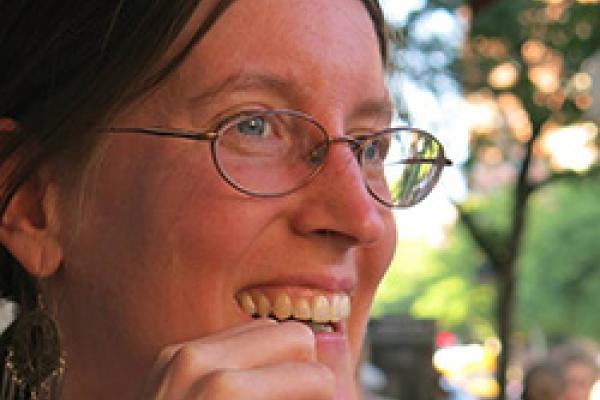
Dr. Maureen Pritchard will explore the intersection of Soviet racial imagination and and music in Kyrgysztan in this lecture. The borders between former Soviet Republics have helped to solidify concepts of ethnicity constructed within the Soviet period. As these geographical and ethnic boundaries materialize, rematerialize and dematerialize in uneven cycles, so do the borders of ethnicity. In Kyrgyzstan, ethnic boundaries are created through shifting combinations of language, history, culture and sociality. Through its interrelationship with language and culture, it role in the construction of history, and its function as a mode of sociality, music participates in constructions of belonging, as well as in the lack of belonging that contains conditions for the construction of race.
This lecture traces the play of the Soviet racial imagination in music through constructions of belonging in relationship to a composer, a musician and an instrument maker living in contemporary Kyrgyzstan. For the composer—like the Soviet musicologists who preceded him--race manifests in constructs of a primitive music, even as class is superimposed upon race through the construction of the African-American as a surrogate proletariat. For the komuz player, an African-American student draws forth colonial patrimony, even as the presence of the komuz in foreign hands draws forth anxieties regarding the state of ‘national’ music. For the instrument maker, the racial imagination is embraced and expanded through an international pantheon of spirits that guide not only the creation of instruments, but the future manifestation of people, ethnicity and nation.
Dr. Maureen Pritchard received her PhD in Social Anthropology from the School of Oriental and African Studies at the University of London and an MA in Ethnomusicology from Ohio State. Her research focuses on music, Kyrgyzstan, and ethnicity. Her publications include "Ancestors and Instruments" in Pertenencias múltiples, identidades cruzadas. Nuevas perspectivas sobre Asia central and "Nature, Narod, and Emotion: Engaging Socialist Realism and the Arts in Krygyzstan" in Anthropology of East Europe Review. She has extensive experience living and working in Central Asia.
